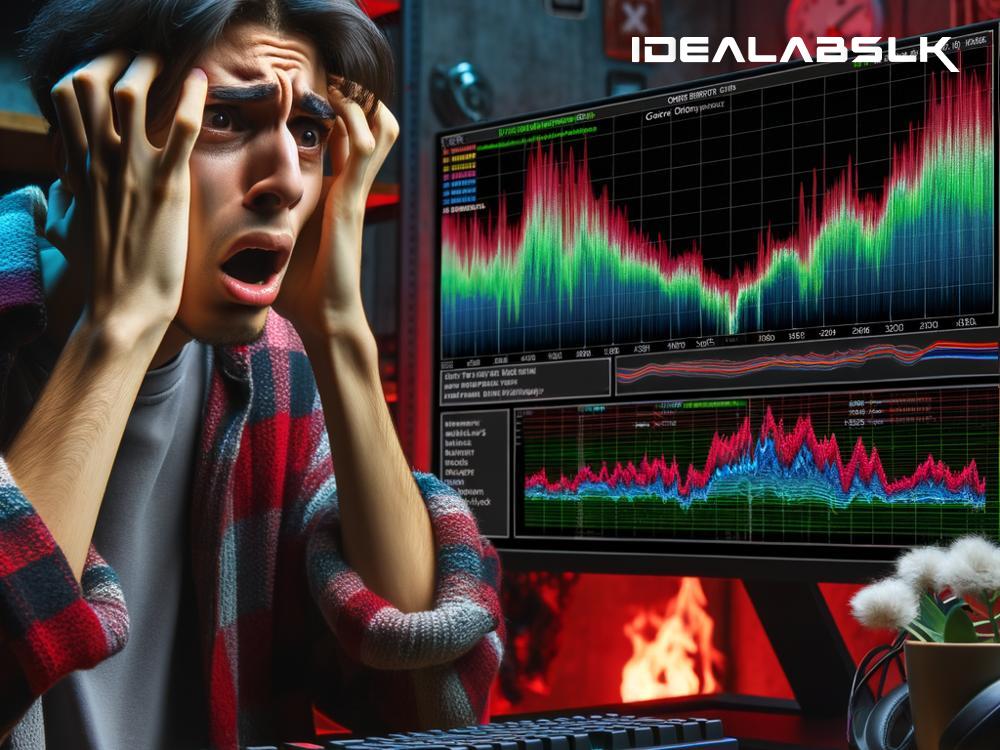Fixing 'PC Performance Drops When Gaming': A Simple Guide
Are you frustrated by your gaming experience getting ruined by sudden performance drops? No worries! You're not alone, and fortunately, there are several simple solutions to get your games running smoothly again. Poor PC performance during gaming can be caused by a myriad of issues, but we're here to break down the most common culprits and how to fix them in simple English. So, let's get your gaming experience back to top-notch with minimal fuss.
1. Update Your Drivers
First thing’s first: make sure all your drivers, especially your graphics card driver, are up to date. Think of drivers as the bridge between your computer's hardware and software. When they're outdated, that bridge might get a little shaky, leading to performance drops. Updating drivers is straightforward: you can visit the manufacturer’s website (like NVIDIA or AMD) and look for the latest drivers. Many of these companies also offer utilities that automatically keep your drivers updated.
2. Check Your Settings
High graphics settings can strain your PC, especially if it's not the latest model. You’d be surprised at how adjusting your game's graphics settings can improve performance. Lower the resolution, turn off extra effects like shadows or reflections, and reduce the texture quality. This can dramatically increase your framerate, making for a smoother gaming experience. Many games come with a “recommended settings” option based on your system's capabilities - don’t be afraid to use it!
3. Monitor Your System’s Temperature
Overheating can cause significant performance issues. High-performance gaming generates a lot of heat, and if your cooling system can’t keep up, your PC will automatically slow down to prevent damage. You can monitor your system’s temperature using various software tools available online. If you notice high temperatures, consider cleaning your PC's fans, reapplying thermal paste to your CPU, or investing in additional cooling solutions.
4. Manage Your Resources
Background applications can eat up your system’s resources, leaving less available for your game. Before launching your game, close unnecessary programs, especially those that use the internet or lots of memory. You can check which applications are using the most resources through Task Manager (Ctrl + Shift + Esc). Additionally, ensure your antivirus software is set to "Gaming Mode" or paused, as scans can significantly impact performance.
5. Upgrade Your Hardware
Sometimes, the only solution is to upgrade your PC's hardware. If you’ve tried everything else and your games still aren’t running smoothly, it might be time to invest in your setup. Upgrading your graphics card can make a huge difference, but even adding more RAM or moving your games to an SSD instead of an HDD can improve loading times and overall performance.
Tips for Optimizing Your Gaming Experience
- Keep Your PC Clean: Dust buildup inside your PC can contribute to overheating. Regularly cleaning the inside of your computer, including fans and heat sinks, can improve airflow and cooling.
- Optimize Power Settings: Make sure your PC's power settings are configured for maximum performance. Energy-saving modes can throttle your hardware and affect gaming performance.
- Keep Your System Updated: Along with keeping your drivers up to date, ensure that your operating system and the games themselves are updated. Developers often release patches to improve performance and fix bugs.
- Use Wired Connections: If possible, use a wired internet connection instead of Wi-Fi. Wired connections are generally more stable and can reduce latency, making for a smoother online gaming experience.
Navigating the world of PC gaming performance can seem daunting, but addressing issues doesn't have to be complicated. By following these steps and tips, you can often solve or mitigate gaming performance drops and get back to enjoying your favorite titles at their best. Happy gaming!

